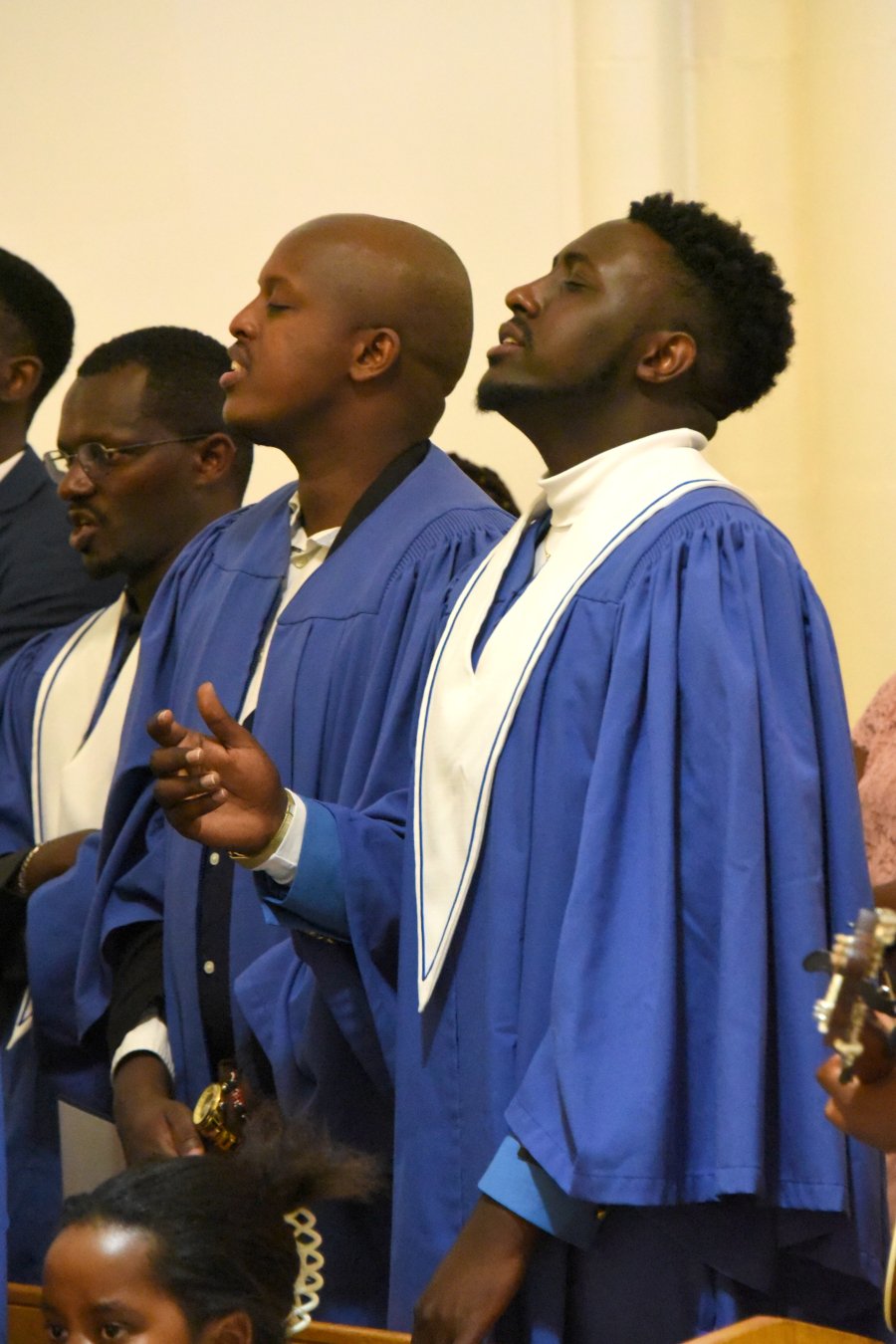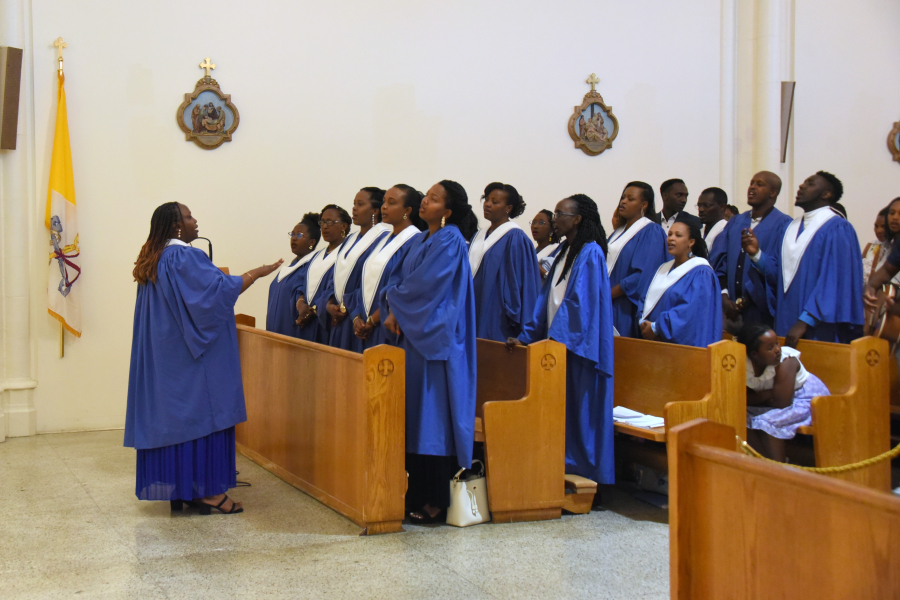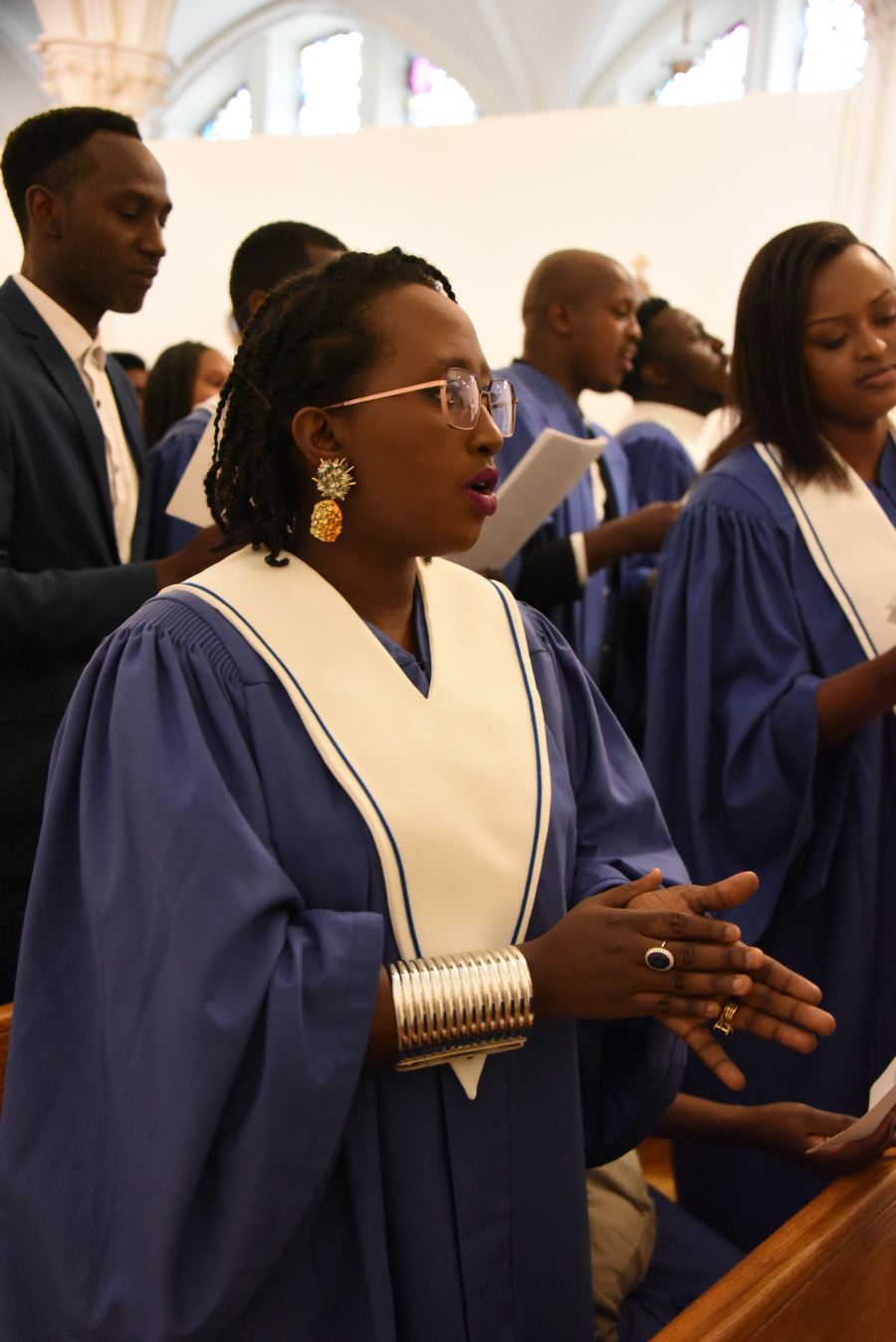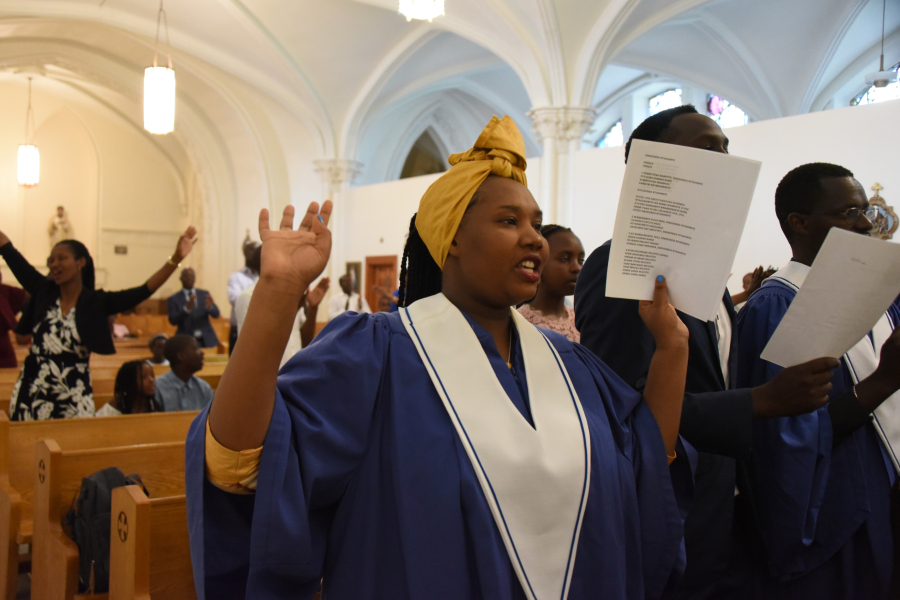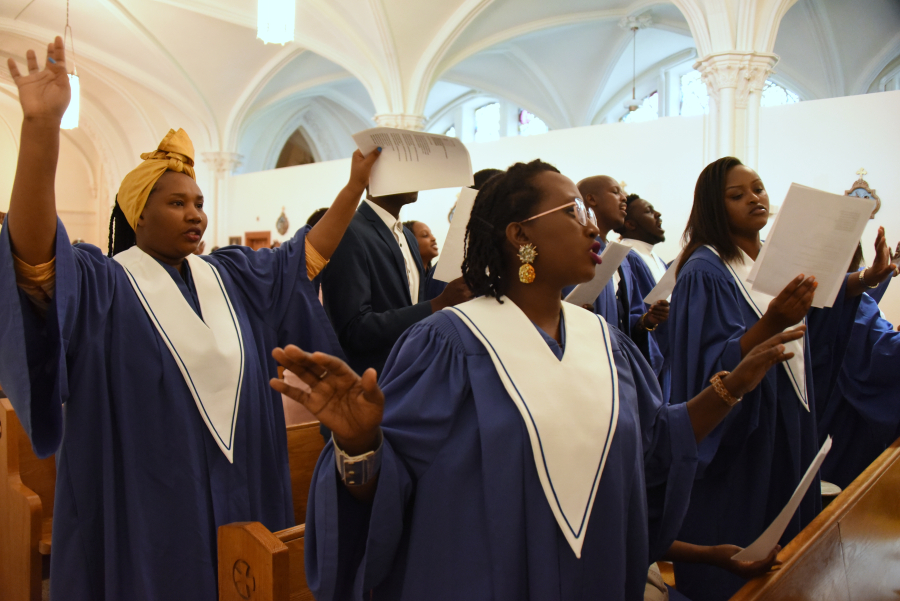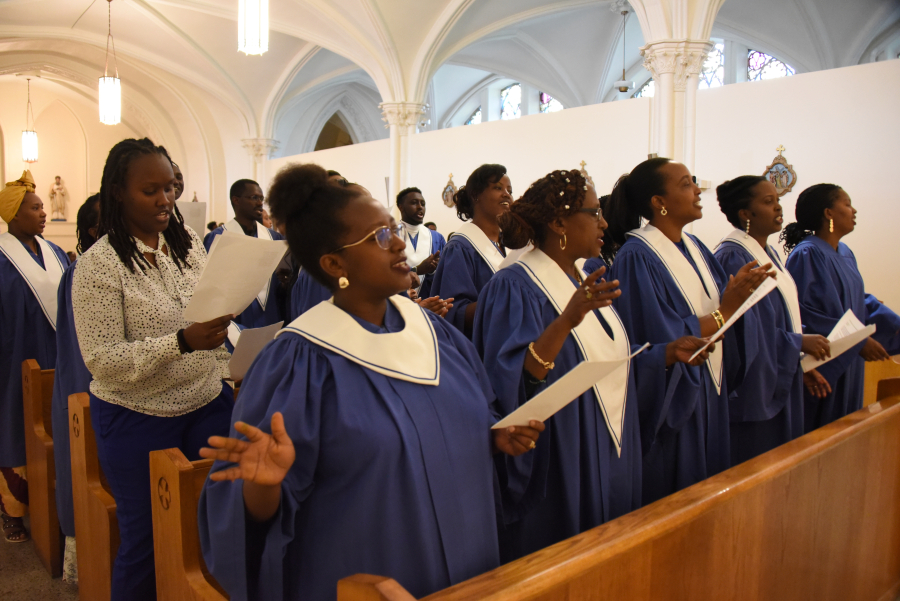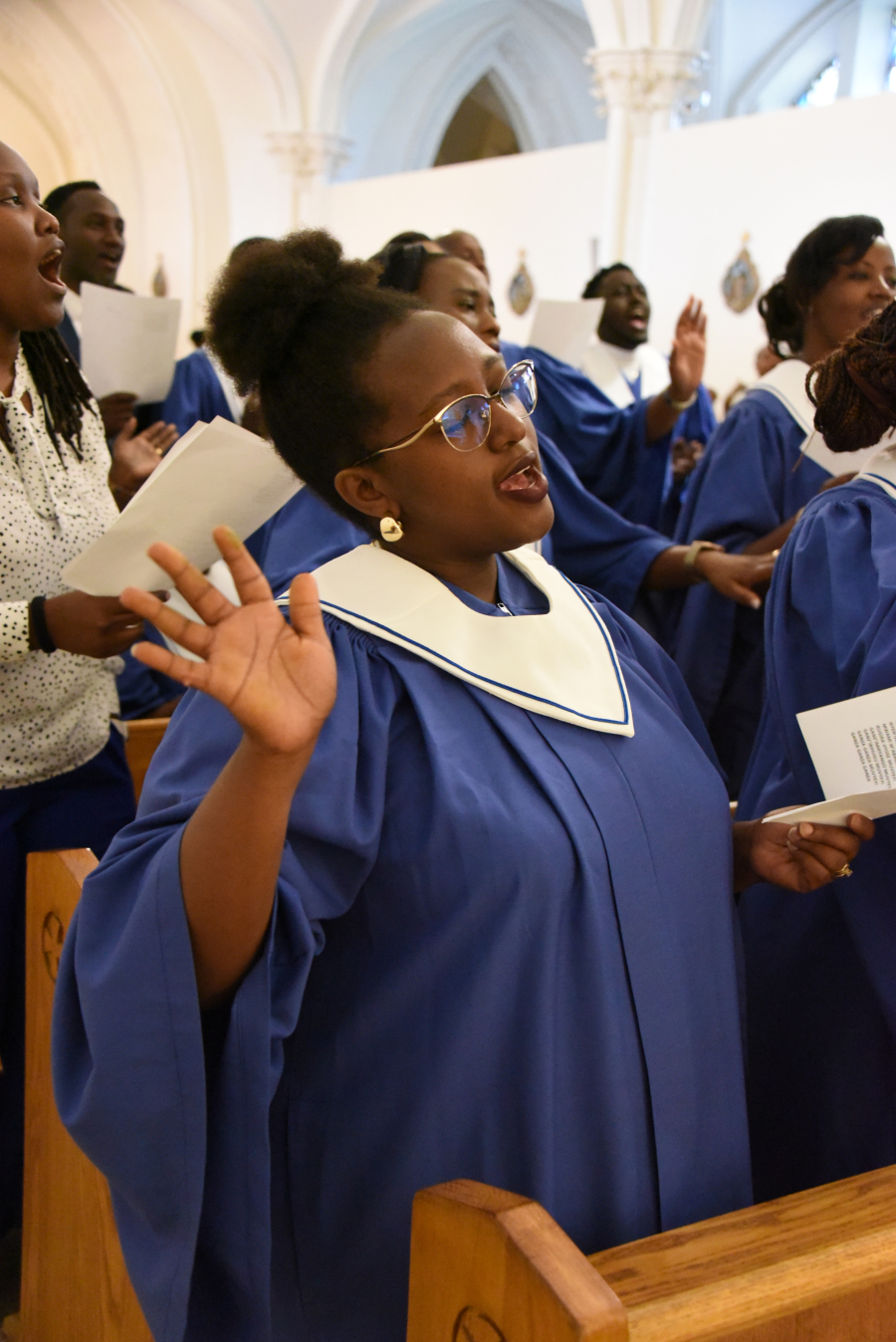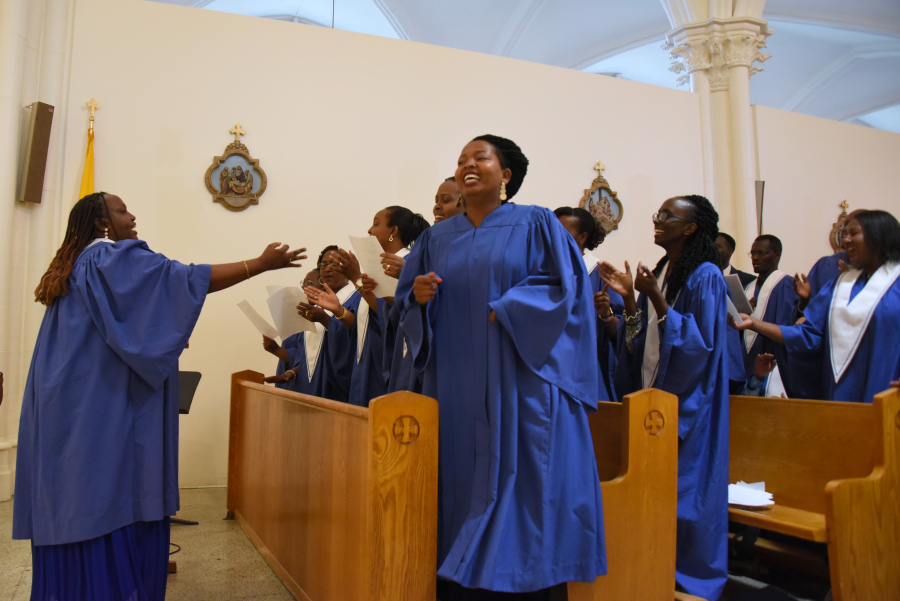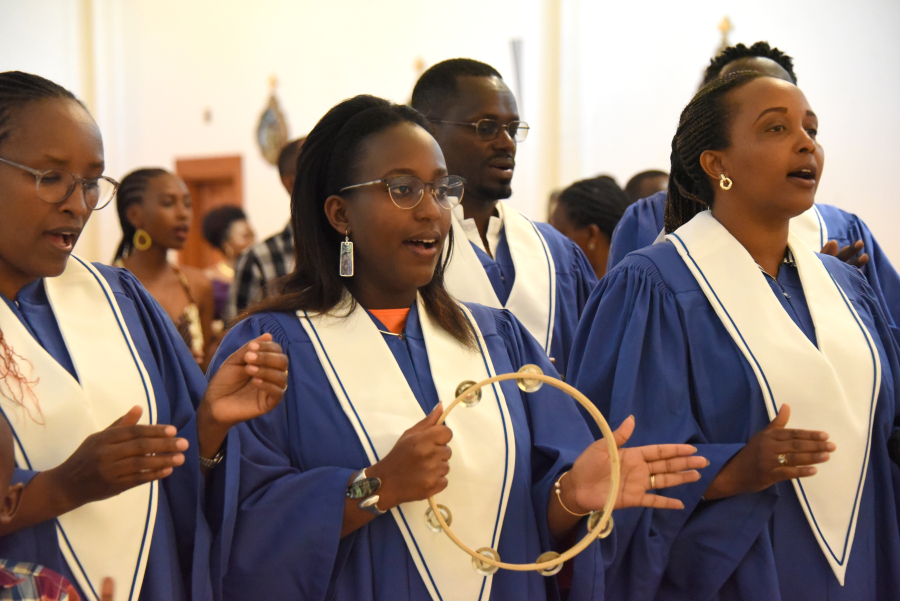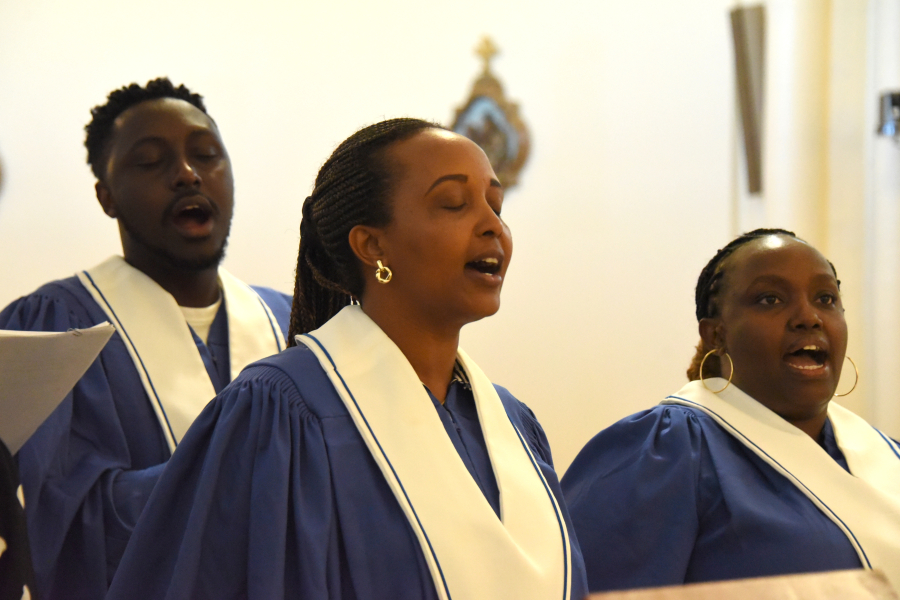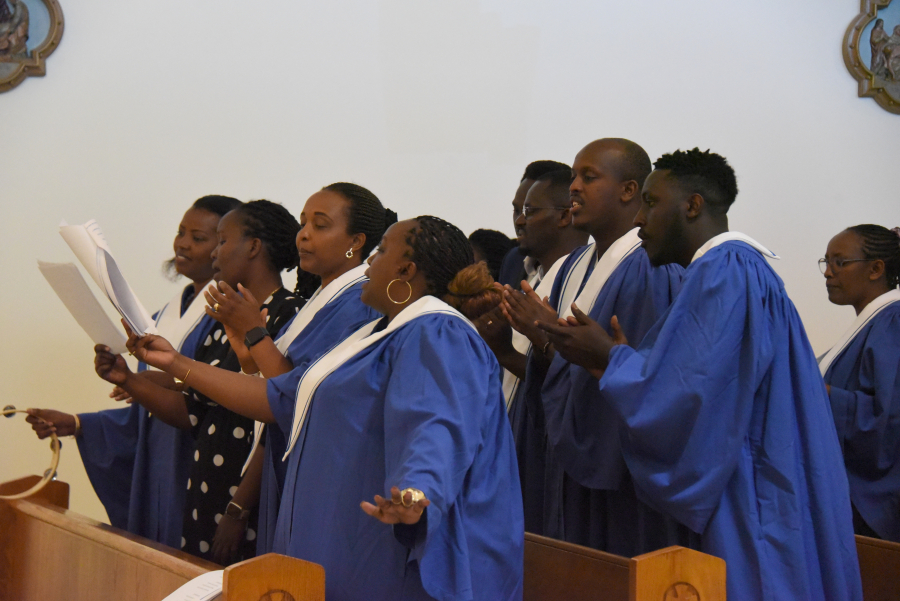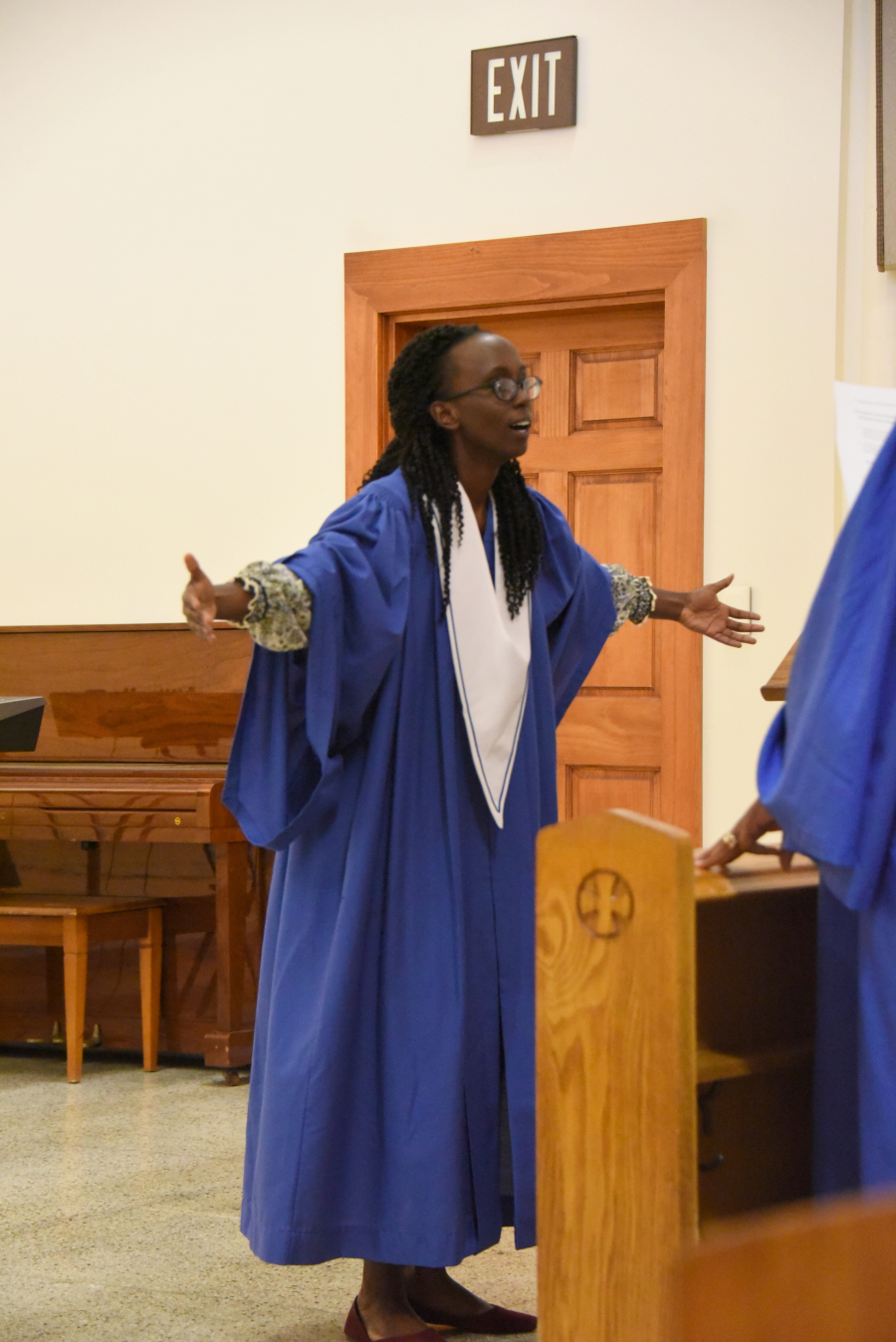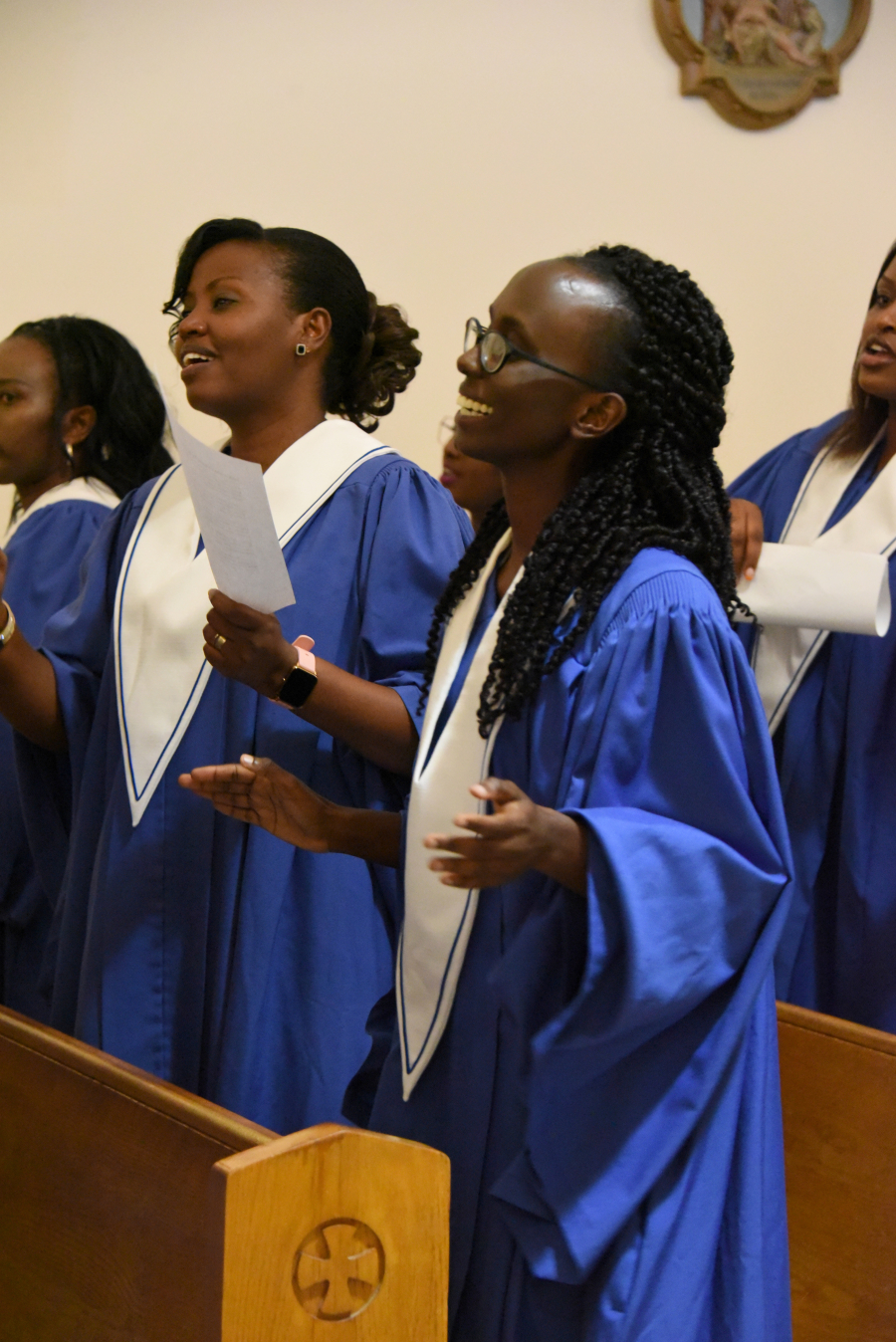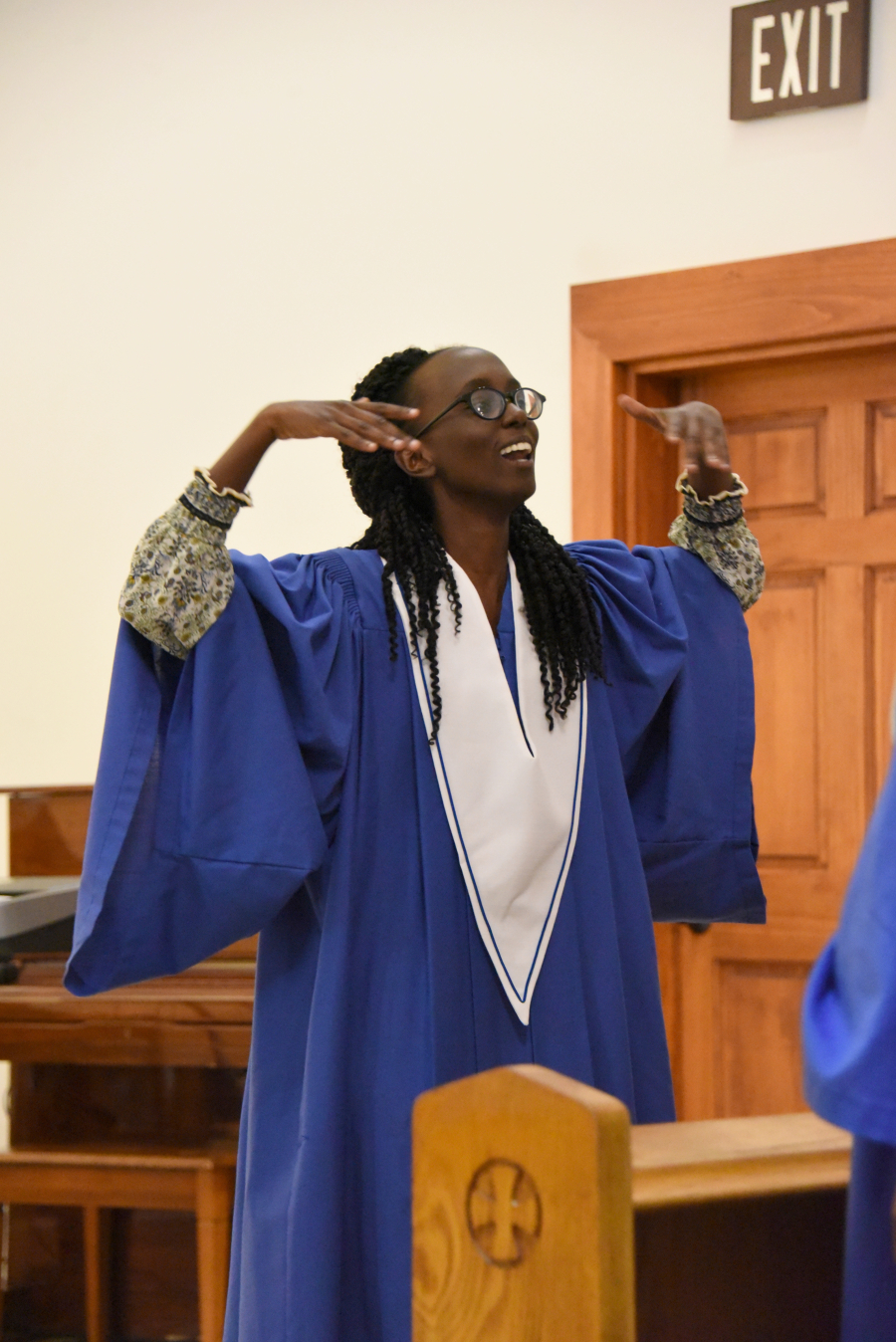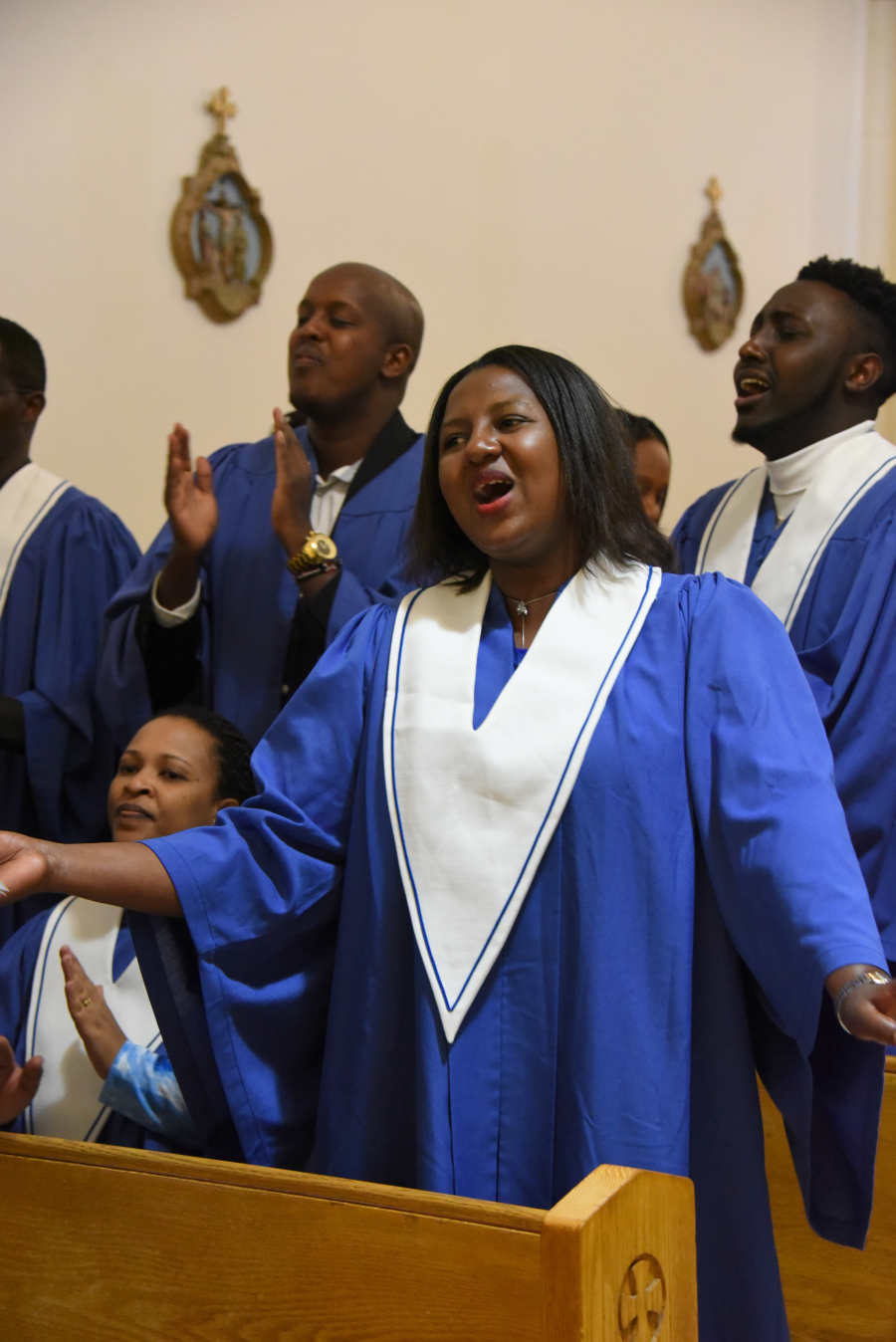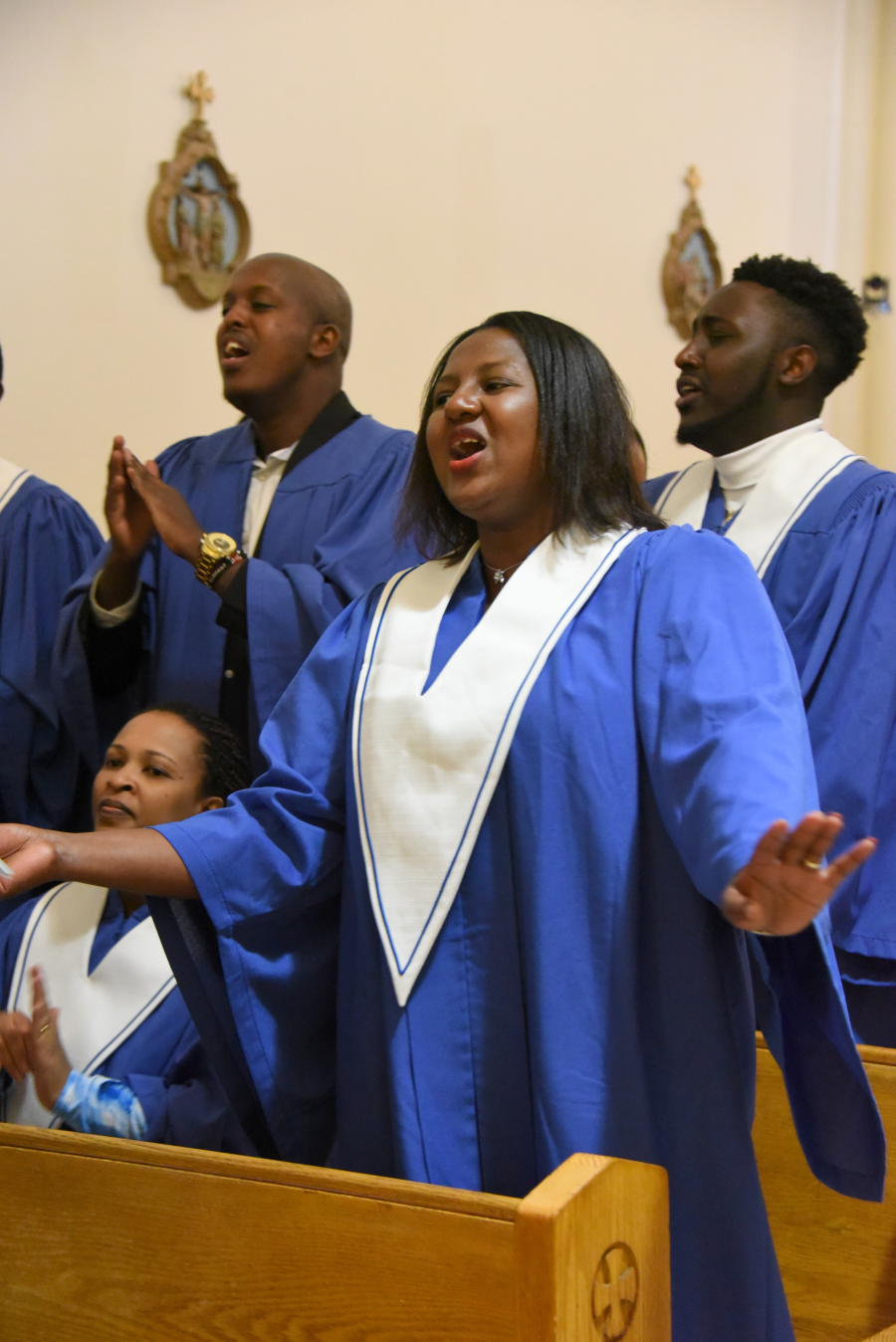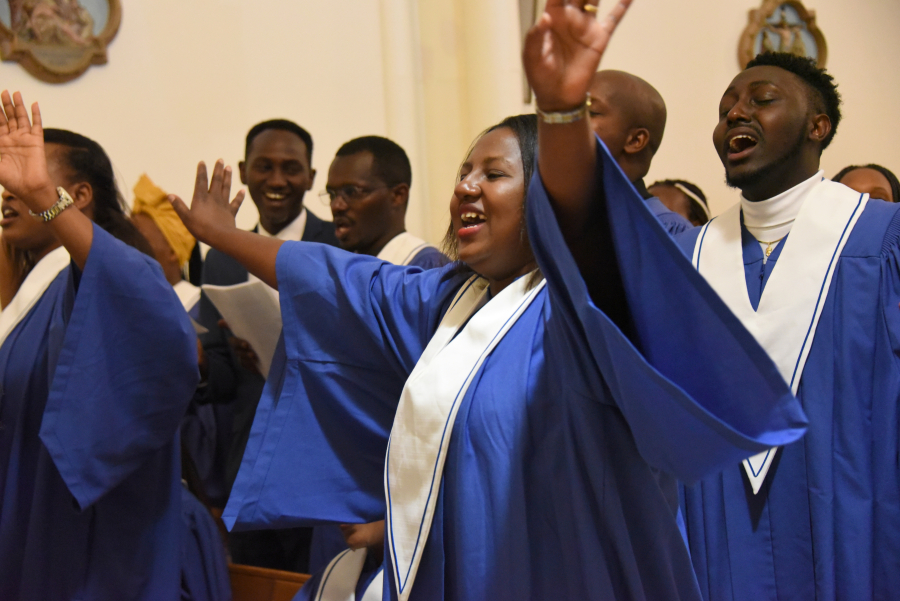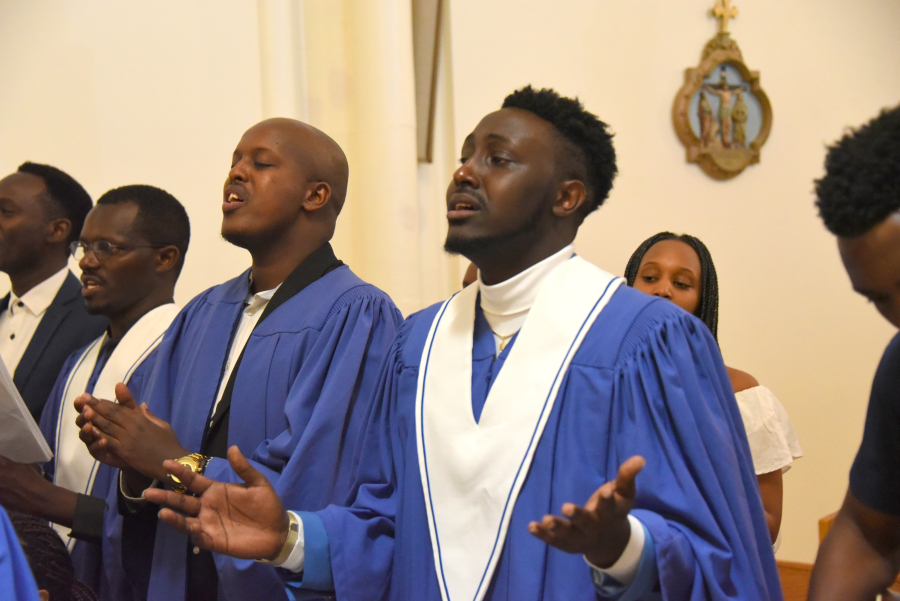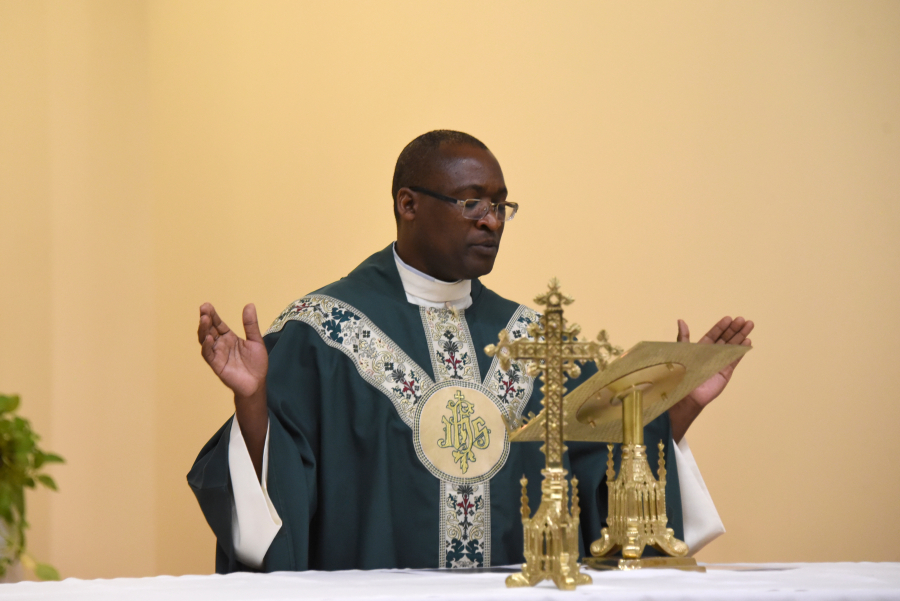Raising the Spirits of Members of the African Catholic Community in Lewiston and Beyond
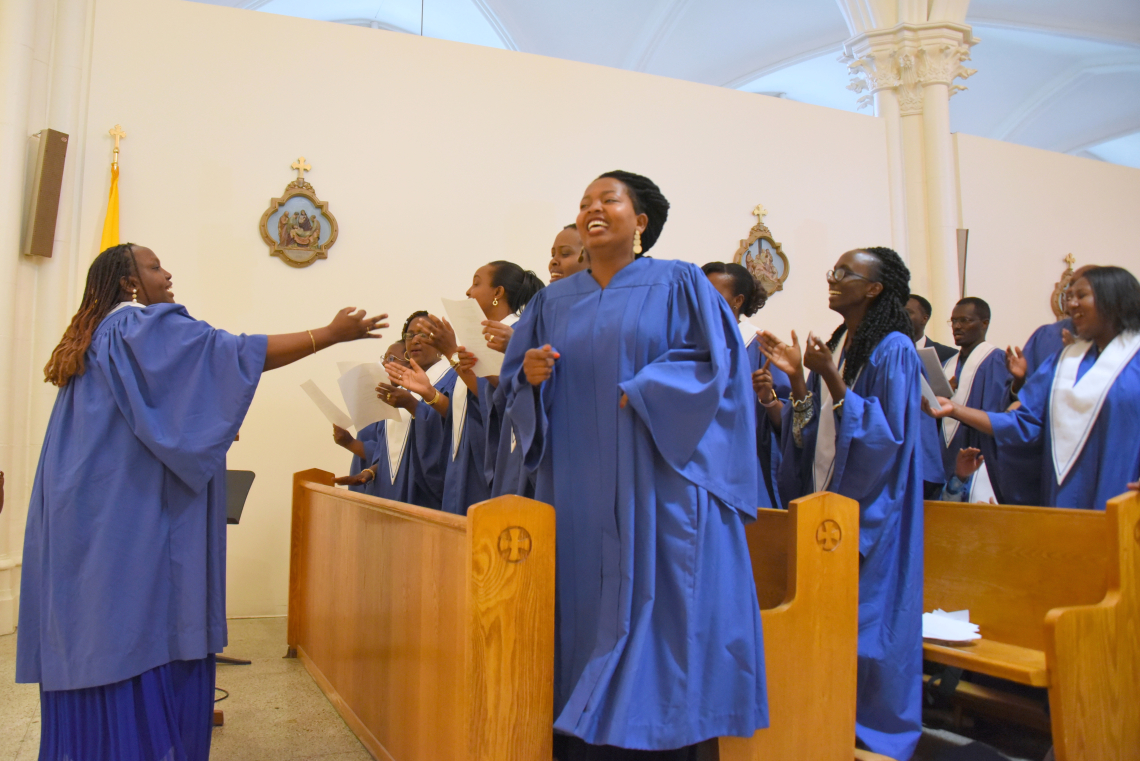
LEWISTON---Once a month, Christa Bella makes a more than 200-mile trip from Boston, Massachusetts, to the Basilica of Ss. Peter & Paul in Lewiston for the celebration of Mass.
“This just reminds me of home,” she says. “There is an atmosphere there.”
What draws Bella to the basilica each month is a Mass celebrated with members of Maine’s African community. The Mass is celebrated in Kirundi, the primary language of Burundi, and features the Choir Notre Dame de la Paix, which sings in three languages: French, Kirundi, and Kinyarwanda, which is spoken in Rwanda. Bella, who arrived in Boston from Burundi in 2017 to attend college, says she hasn’t been able to find anything similar where she now lives.
“I haven’t had a chance to be with a Catholic Burundian community in Boston, so I come here once a month, and hopefully, I can continue to keep coming,” she says.
Having a Mass for members of the African immigrant community has been Dancile Nshimirimana’s dream since she began serving as an outreach coordinator with Prince of Peace Parish in Lewiston three years ago. Nshimirimana, who is originally from Burundi, says she became concerned because she was seeing families drift away from the Catholic faith due to the language barrier.
“It was one of my priorities because when we first moved up here, I knew some people who were very active in the Catholic community back home, but once they got here, coming to the English Mass where they didn’t understand anything and were just sitting there, they preferred to go to a Protestant church because they had people who could preach in a language they could understand,” she says.
Nshimirimana says she also knew children were missing out on the sacraments of baptism, confirmation, and first Communion and that some adults were no longer going to confession.
“Even if they just came to church to pray, not understanding everything, they were not going to confession,” she says.
When Nshimirimana learned that a member of the Rwandan community had arranged for a priest friend from Boston to come here to celebrate his wedding liturgy in his native language, she approached the priest about coming up again. He agreed, and after the details were worked out with the parish and the diocese, he began celebrating Mass monthly.
“He didn’t have a car. He had to take a bus, and I would go pick him up from the bus station either here or in Portland. I or one of the members of our community would go pick him up,” she says.
The priest, Father Angelo Nisengwe, was pursuing graduate studies at Boston College. When they were completed, he connected Nshimirimana with another priest studying at the college, Father Jean Bosco Niyokwizere, who, fortunately, did have a car. When he graduated this past May, Father Felix Barutwanayo, SJ, took over.
“They expressed the need, and so, we collaborated with the parish priest here, and since we are available, we can serve once in a while,” says Father Barutwanayo.
The priests, who have also traveled to Maine to celebrate funeral Masses and for a day of recollection, say they are happy to do it because it benefits the community.
“Some of them don’t yet know English. Of course, they are learning, but even if they learn, doing liturgy in your own language adds the feeling, the effectiveness of the practice and helps them to grow spiritually,” says Father Barutwanayo. “Some might struggle integrating into a new parish and into a new environment, so I think they need accompaniment to integrate themselves and, also, to continue with their faith practice.”
“To have our own Mass in our own language, we can pray better, and we can connect more with our community, with our roots. Every time you are outside your country, you have a longing for your country, so when you go somewhere where they speak your language, you are happy,” says Linda Ndizera.
“It is so beautiful to see when new people come, and they find out there is a Mass in Kirundi. They are so happy that they can join in,” says Nshimirimana.
The Mass regularly draws people not only from the Lewiston-Auburn area but also from the greater Portland area and, of course, Bella, who not only attends the Mass but participates in the choir.
“I used to sing in a choir back home,” she says. “I was in choir for 12 years, and I came here, and I heard them singing in Kirundi, and I said, ‘I have to be back among them.’”
When the Masses first started being celebrated, Nshimirimana says she would just gather together anybody who wanted to sing, but eventually, they became organized enough to form the Choir Notre Dame de la Paix. It celebrated its first anniversary in July.
“It’s important for us to have people committed to participating in the choir so they can help other people to pray. Singing in Mass helps people to pray well and to feel a part of the Mass,” she says.
“It was important to give people from our country hope and let them see that what they did in their country, they can do here. Then, we can involve other people here. Then, we can say where we are now, this is home,” says Gloria Ndayishimiye, who helped start the choir with Nshimirimana and who returned from Arizona, where she now lives, for the celebration of the choir’s anniversary. “It is amazing to see how many people are now singing. It’s exciting.”
The choir has grown to 27 members, nearly all from Burundi or Rwanda.
“I like praying when I am singing, instead of just saying some words. When I’m singing, I’m really feeling like I am talking to God,” says Belise Ndikumagenge, the choir director.
“Whoever sings, prays twice, and it’s even better when you are singing in your own language because there are such deep roots to that. It goes straight to the heart,” says Ndizera. “It is important to me because I identify more when I am singing in my own language.”
Reflecting the tradition of their home countries, more parts of the Mass are sung than you would normally find at churches in Maine.
“The Mass is still the same, but in parts of the Mass where we do sing, they don’t sing at all here, or they only sing something shorter,” says Nshimirimana. “When we sing, we sing longer. That helps people to pray, and that’s what we were used to back home.”
Far from lamenting the resulting increase in the length of the Mass, the congregation joyously joins in the celebration, rising from their seats to sing with arms raised, swaying to the music.
“I’m happy to attend this Mass because it is an occasion to be with people from our community,” says Jean Luc Havyarimana, a parishioner originally from Burundi, who now lives in Auburn.
Along with their uplifting voices, the choir members stand out at the Mass thanks to their bright blue robes, which were given to them by Pauline Griesbach, who leads the basilica’s children’s choir. The robes were donated to her, but they were adult-size, so the Choir Notre Dame de la Paix members became the fortunate recipients.
Nshimirimana says it worked out perfectly because blue is Mary’s color, and the choir is named for her. Nshimirimana is now looking for a way to acquire African drums and a guitar so the choir can be accompanied by instrumentation.
“Once we get the instruments and get more prepared, maybe we can set up a date for a concert for everyone to come,” she says.
The choir has sung for students at Saint Dominic Academy in Auburn.
“We’re hoping to do that maybe once every three months for them because they enjoyed it,” she says.
Nshimirimana says having the Mass and choir have helped to invigorate the African Catholic community. She says while she used to make all the preparations for the Mass herself, now others have stepped forward.
“Now that we have people available, I’m confident the Mass could happen even if I have to work,” says Nshimirimana, who is a nurse in addition to serving at the parish.
The Mass has also helped community members form a closer bond with the parish. More attend the Masses celebrated in English, and three serve as readers at them. In addition, two children are altar servers, and several sing in the children’s choir.
“The beautiful thing is they’re not only participating in the African community; they are also involved in the parish activities,” says Nshimirimana. “It is beautiful.”
She says she would love to be able to have the Masses celebrated more often, something community members say they would welcome.
“I wish we could have a Mass every Sunday,” says Edgard Mutoni, a member of the choir. “We’re really, really grateful. We enjoy the Mass. It’s really important for us.”






